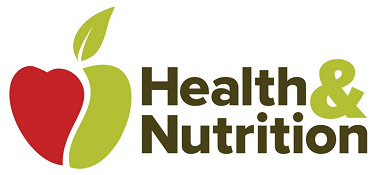Have you ever run out of energy during a long workout? It can be difficult to choose what to drink or eat during your training, especially when you read everywhere that sugar is bad for your health. Here are some simple tips for maximizing your energy during a workout lasting over an hour.
It is true that excessive sugar consumption is associated with an increased risk of diabetes , obesity and cardiovascular disease.. More than half of the North American population consumes an excessive amount of it, which is why it is a major concern. However, when we exercise, we need sugar, since it is used to produce energy. Sugar is not harmful to health if it is used by the body as it is consumed. After about an hour of high-intensity exercise, carbohydrate stores are quickly depleted and must be replaced, otherwise you risk running out of energy. This is why it is important to consume sugar during training if it is intense and long-lasting in order to be able to perform at your maximum and feel good.
Which sugars to choose and in what quantity?
During training, it is important to choose simple sugars that will be absorbed quickly, such as glucose, fructose and maltodextrin. In theory, the body is able to absorb up to 60 g of glucose and maltodextrin per hour and 30 g of fructose per hour, for a total of 90 g of carbohydrates per hour. While top athletes benefit from consuming so much, a smaller amount (eg 30g per hour) is sufficient for a recreational athlete. You should also know that it is possible to train our ability to use carbohydrates during exercise and therefore improve our tolerance to carbohydrates during exercise. If you choose to consume energy gels, it is important to take them with water to reduce the risk of gastrointestinal disorders. Moreover,
Let’s demystify commercial sports products
It is important to experiment with several drinks, supplements or foods to find the ones that work for us, because their effects vary from person to person. Thus, we can find products that are practical, pleasant to the taste, rich in energy and comfortable in terms of digestion. To help you make your choice, here is the description of the main ingredients that can be found in sports products and their usefulness.
Glucose (dextrose in English) : Simple sugar, absorbed quickly.
Maltodextrin : Simple sugar, absorbed by the same route as glucose. However, it is absorbed faster than glucose. In addition, it requires less water to become isotonic and to be absorbed. Unlike other sugars, it doesn’t really have a flavor, which can be interesting for those who don’t like products that are too sweet.
Fructose : It is a sugar that comes from fruits. It uses a different absorption pathway than glucose and maltodextrin (it is absorbed by the liver), hence the advantage of choosing a gel or drink that combines glucose/maltodextrin and fructose to allow absorption more carbohydrates at a time. Consumed in too large quantities, it can cause digestive discomfort. It should be avoided in people with irritable bowel.
Maple syrup and honey : These are natural sugars that contain glucose and fructose. Compared to glucose, they have a low glycemic index, ie they are digested, absorbed and metabolized more slowly, which leads to a slower and less significant increase in blood sugar. They can thus prevent a rapid drop in blood sugar and are a better choice for diabetics.
Sodium and Potassium : Sodium and potassium losses generally do not affect performance during training in the majority of people. All the studies do not show that the losses of sodium and potassium are linked to muscle cramps. It can be useful to consume a drink containing salt during a long training session, especially if it is very hot or if you sweat a lot.
Antioxidants : These are most often the antioxidant vitamins E and C, which help to reduce inflammation, among other things. A balanced diet helps to meet our vitamin and mineral needs. For athletes who train a lot, a daily multivitamin supplement is recommended. It is not necessary to consume vitamins specifically during training.
Caffeine : Caffeine consumption may improve performance in endurance or intermittent sports by extending exercise duration and improving fat utilization during exercise, thus sparing glycogen stores. It should be noted that not all individuals respond the same way to caffeine. Indeed, there is a genetic predisposition to respond to caffeine, so that some individuals will be very stimulated while others will feel very little effect. Its consumption can be accompanied by side effects such as palpitations, irritability, anxiety and tremors.
Branched Chain Amino Acids (BCAAs) : Proteins are made up of amino acids, which are their basic structural units. There are nine essential amino acids, that is to say that the body is not able to synthesize them by itself and must necessarily find them in food to meet its needs. Branched chain amino acids (BCAAs) are made up of three essential amino acids, namely leucine, isoleucine and valine. According to popular accounts, BCAAs could potentially decrease the breakdown of proteins in the muscle and delay the moment of exhaustion during endurance events. However, all of the studies failed to demonstrate any effects of BCAAs on endurance performance or on delaying the onset of fatigue and prolonging the duration of exercise. Moreover, branched chain amino acids are abundant in our diet. A BCAA tablet is composed on average of 100 mg of valine, 50 mg of isoleucine and 100 mg of leucine. For comparison, a 100g chicken breast is equivalent to 7 BCAA tablets, while 4 tbsp. of peanut butter equals 11 BCAA tablets.


